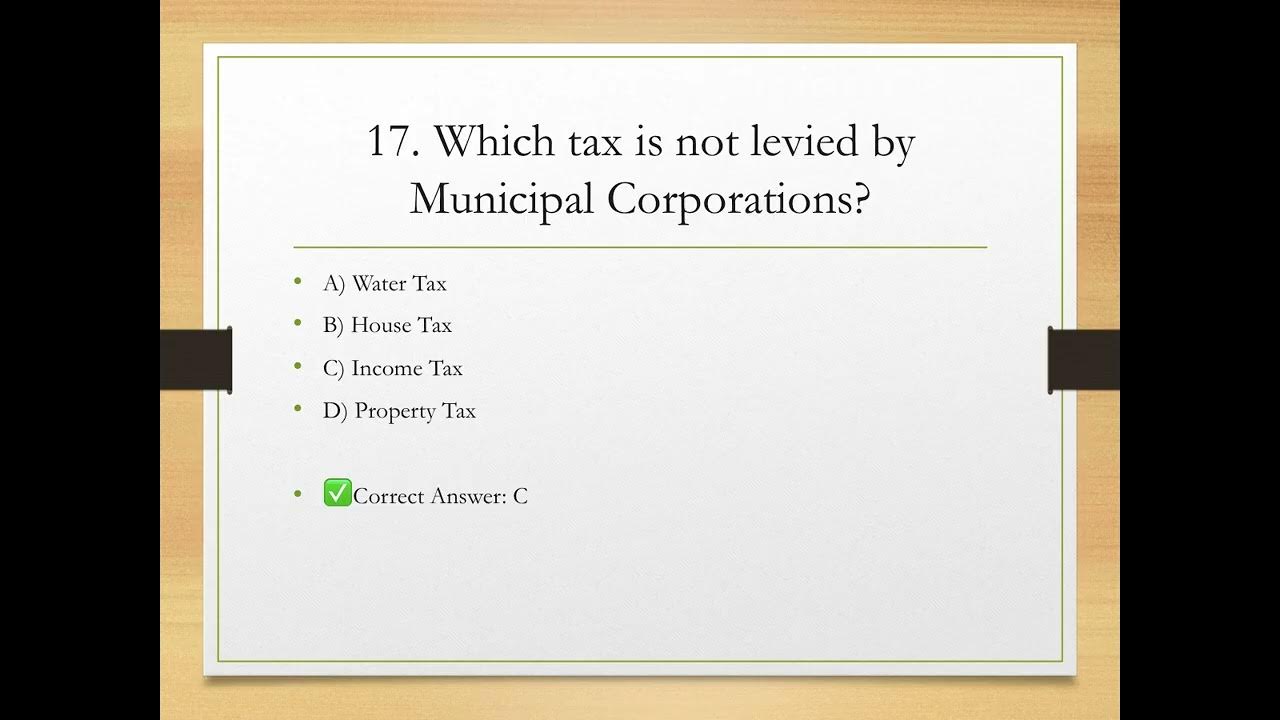Como estudar para concursos municipais: pontos mais cobrados de Estatuto dos Servidores Públicos
Summary
TLDRIn this video, Cláudia Radinho, a professor of legislation, covers the five most commonly tested topics in municipal public servant exams, specifically focusing on the Unique Legal Regime for Municipal Servants. Key points include the concepts of public servant and public office, methods of filling public positions, vacating positions, probationary periods for public servants, and the rights of municipal employees. Cláudia emphasizes the importance of memorizing legal definitions, provisions on career advancement, and the structure of these legal regimes to succeed in municipal exams. The content is enriched with practical tips and study strategies for candidates preparing for public sector positions.
Takeaways
- 😀 Understand the importance of the legal concepts of 'Public Servant' and 'Public Position' in municipal statutes.
- 😀 Public Servant is someone legally appointed to a public position, and the position is defined by law, including its responsibilities and remuneration.
- 😀 'Provimento' refers to the process of filling public positions, and you should memorize methods like 'nomination,' 'promotion,' 'readaptation,' and 'reversion.'
- 😀 Readaptation can serve both as a method of filling a position and a cause for vacancy in certain cases, especially involving physical or mental limitations.
- 😀 Memorize the difference between 'exoneration' (voluntary or official) and 'demotion' (penalty).
- 😀 'Vacância' refers to the causes of vacancy in public positions, including retirement, exoneration, and demotion.
- 😀 The probationary period for public servants is typically 3 years, where they are periodically evaluated to confirm their suitability for the position.
- 😀 During the probationary period, civil servants are assessed by a commission based on established criteria and are either confirmed or disqualified for permanent status.
- 😀 Public servants must understand the rights guaranteed by the Constitution (Article 37) and compare them with the municipal statutes during their studies.
- 😀 In municipal civil service exams, be prepared to answer questions about public servants' rights, which are a frequent focus of exam questions.
Q & A
What is the primary focus of Cláudia Radinho's video?
-The video focuses on the five most frequently tested points related to the municipal public service statutes, helping viewers prepare for public service exams.
What are the two main concepts defined at the beginning of the municipal public servant statutes?
-The two main concepts are 'public servant', defined as a person legally invested in a public position, and 'public position', which is created by law and has specific duties, responsibilities, and compensation.
What is the relationship between the law and the definition of public servant and public position?
-The law is responsible for both investing a person in a public position and for creating the position itself, outlining its duties, responsibilities, and remuneration.
What are the primary forms of filling a public position (provision of position)?
-The primary forms of filling a public position include *nomination*, *promotion*, *re-adaptation*, and *reversion*.
What does 'reversion' mean in the context of public service statutes?
-Reversion refers to a public servant returning to active duty after being retired, if the reasons for their retirement no longer apply.
What are some forms of vacancy in a public position?
-Forms of vacancy include *retirement*, *exoneration*, *demotion*, and in some cases, *re-adaptation*, which can also serve as a form of vacancy in certain statutes.
How does *exoneration* differ from *demotion* in the context of public service?
-Exoneration can happen voluntarily or involuntarily, while demotion is a disciplinary penalty for the public servant.
What is the duration of the probationary period for public servants in permanent positions?
-The probationary period lasts for three years, during which public servants are periodically evaluated to assess their suitability for stability in the public service.
What is the ultimate goal of the probationary period for public servants?
-The goal of the probationary period is for the public servant to acquire *stability* in the public service if they are deemed fit after the evaluations.
What rights do public servants have according to the video?
-Public servants have specific rights guaranteed by law, which can be found in Article 37 of the Constitution. These rights may be the subject of questions in exams, either as the main focus or as part of true/false statements.
Outlines

This section is available to paid users only. Please upgrade to access this part.
Upgrade NowMindmap

This section is available to paid users only. Please upgrade to access this part.
Upgrade NowKeywords

This section is available to paid users only. Please upgrade to access this part.
Upgrade NowHighlights

This section is available to paid users only. Please upgrade to access this part.
Upgrade NowTranscripts

This section is available to paid users only. Please upgrade to access this part.
Upgrade NowBrowse More Related Video

Como estudar para concursos municipais: pontos mais cobrados de Lei Orgânica

STF acaba com REGIME JURÍDICO ÚNICO depois de LIMINAR de 17 ANOS proibindo CLT no SERVIÇO PÚBLICO

MCQ's based on Maharashtra Municipal Corporation Act

CONTABILIDADE PÚBLICA PARA CONCURSOS - AULA 02 - PARTE 01/03 - NOÇÕES DE PCASP

ADI 2135: STF valida fim do Regime Jurídico Único dos servidores - entenda a decisão!

Aula 03 Lei 8.112/90 para concursos INSS, TRT, PF, PRF
5.0 / 5 (0 votes)